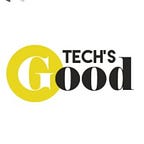Lennart van der Ziel: ‘Cooperation, not competition!’
Lennart van der Ziel is CEO & Co-founder of the fast-growing Dutch startup Travis the Translator. From Law school to the startup scene, Lennart has led multiple international teams including being a founding member of Venture Café Rotterdam, a thriving community of entrepreneurs, innovators and investors. He has a passion for realising breakthroughs in organisations and combining community building and project management in his work with Travis.
[¡Este artículo está disponible en español!]
What is Travis the Translator and how does it work?
Travis the Translator is our solution to the communication problem we aim to solve. Travis aims to bridge language barriers with innovative translation technology and change the way we communicate. Technology in this area is available and maturing and Travis wants to make a step towards removing language barriers and ensuring everyone can communicate.
Travis the Translator can be used by two or more people for bilingual conversations. It has 80 languages available, including 20 offline, and translates from speech to text, text to text and then a computerised voice synthesises text to speech. This way, we ensure that Travis helps people with eye to eye contact and doesn’t require fumbling with headphones. Travis has the power to significantly change communication because it kickstarts mass usage of translation technology powered by AI, so the technology will get better exponentially instead of incrementally.
What were you hoping to achieve when you started Travis the Translator? What inspired you to get involved in the translation field?
I believe that the world is better, safer and fuller of mutual understanding when we can all talk to each other. In the early days, mankind spoke the same language, and when mankind spread out over the world, languages changed. Now the world is coming together again and globalisation has presented a communication problem. There are many personal and professional issues posed by language barriers and having a device like Travis would change the way people experience traveling and communication one-on-one.
What impact have you had so far?
We have just started shipping to over 7,000 people worldwide and by the end of 2017 we aim to have at least 20k people using Travis and actively bridging language barriers. Among them are hospitals, immigration offices, army and aid workers.
We also collaborate with organisations such as Open Learning Exchange (OLE), a global social benefit organization. Over 200 donated devices will be used by OLE’s volunteers in countries with significant communities of refugees such as Madagascar, Lebanon and Mexico. This will help young people in marginalised and at risk communities as they pursue critical language learning opportunities.
We are also currently working to raise funds for devices for an organisation responding to the refugee crisis in Lesbos, Greece, called Movement on the Ground.
How are you trying to improve on what other groups have done?
Travis is the first translation device whose software integrates the best engines available to give you the best translation — we currently use 8 engines with more in the future. We believe in cooperation, not competition! Also, Travis is equipped with enhanced hardware features, such as dual noise cancelling microphones and more natural controls.
With collaboration at the forefront of what we do, we’re working to support existing organisations like OLE and MotG as well as immigration officers, army, police etc. as they already do amazing work, we’d just like to enhance the impact they have.
What are the main challenges you have faced in this space?
The main challenges for us can be categorized into three groups:
- From idea to production: It’s been a difficult process to develop a product from an idea in just a few months. E.g. finding an office and a team, choosing the right manufacturers and working efficiently across continents.
- Time: We seem to always lack time with developing our software, hardware, shipping to customers and learning a lot on the way. For instance, we constantly feel like we are under pressure to deliver our products to our customers in a specified time as well as deliver the best and most developed product possible.
- Resources: With a lack of resources for a large and experienced team, you have to be resourceful.
How are you measuring your impact?
It’s important for us to measure the impact that we are having and evaluate how this impact can be furthered to different groups and business areas. In our campaign for OLE, we raised enough money to provide over 200 devices to 5 different centres all over the world. We’re looking forward to seeing how this affects people and volunteers and collecting feedback and ideas on what can be done to improve Travis and increase our impact.
In our professional business area, we talk frequently to police, army, doctors and similar professionals. Built from their feedback, we’ve started a Travis the Professional project to increase the quality of communications in these environments.
How could you be more effective — what is stopping you?
The key to effectiveness is definitely focus and sometimes, while having so many distractions and goals to achieve at once, we risk losing it. Good communication between the teams is also something that plays a crucial role and is something that we are constantly working on.
What advice for you have for other ventures targeting social issues through technology?
It’s important that your idea or product addresses a problem and has a real need in society today. A good idea, however socially impactful, is still only an idea. In other words, to succeed in these ventures, targeting social issues must adhere to both social goals and unavoidable financial constraints. The aim is to benefit a specific group of people and create impact in their lives but at the same time the endeavor must be financially sustainable (there are different ways of achieving that and it strictly depends on the business model you choose). Make sure you can have both.
